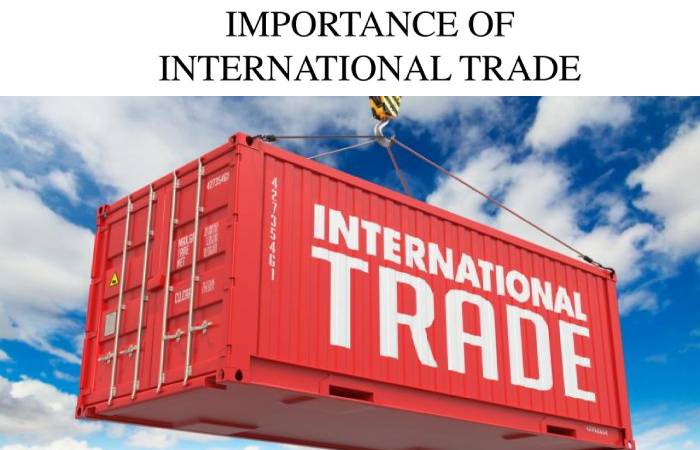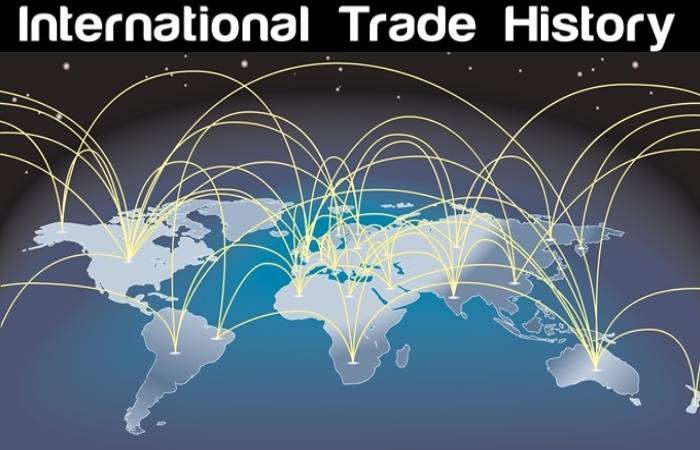Table of Contents
What is International Trade?
International trade refers to all profitable activities that have to do with the transfer of goods, resources, ideas, technologies and services across different countries and markets (part of the economy).
It is carried out using currencies and is subject to additional regulations established by the participants in imports and exports and the governments of their countries of origin.
By conducting international business operations, the countries involved benefiting each other by better positioning their products and entering foreign markets.
For example, if Mexico can export mezcal to more countries and demand for it, the international trade of that drink will grow, benefit the country and its economy.
It involves not only the products but also the services. The products that have the greatest impact on it are oil (and energy), automobiles, chemicals and drugs, textiles, cell phones (and communication products) and food. These industries are part of 70% of world exports and imports.
Importance of International Trade

- It has transformed the world as it has allowed various countries to exchange valuable goods.
- From the days of the “silk road” to globalization, the importance is:
- It makes exporting countries grow.
- A clear example is Germany and China, which have boosted their economy with exports of all kinds.
- They bring new products to the countries.
- Spices are the perfect example; since they come from Morocco, India and the Middle East, they have allowed enriching the world’s gastronomies.
- It improves the conditions for the final consumer. In the long run, trade makes companies that produce higher quality and, in some cases, lower costs survive.
- This causes the final consumer to have the freedom to choose what they prefer.
What is the Difference between Foreign Trade and International Trade?
- It incorporates global product transactions. An example of them is the oil price, subject to a change in its price due to global trade.
- So oil is affected by world economic and commercial events. While in foreign trade, it is a specific country or a commercial bloc that establishes commercial exchange relations with the rest of the world.
- For example, Mexican foreign trade is made up of the actors, institutions, sectors that participate in the export and import from a Mexican perspective.
Challenges of International Trade
- Each country has its governmental system, laws, regulations, taxes, tariffs, culture, currencies, etc. What makes international business more complex than business in domestic markets.
- One of the main functions of international business is to understand how the huge global market operates. Today they operate around more than 200 national markets globally, which present a generous supply of opportunities.
- This does not imply that between nations and their diversity, they do not present unique considerations and a large number of obstacles:
- The wealth that each nation has is different. Some have much more than others which causes a disparity.
- There is regional diversity according to the wealth/population relationship.
- The linguistic and cultural diversity is immense. There are around 100 linguistic/cultural groups worldwide.
- The size of the country and the diversity of its population.
International Trade Courses
- In Commerce and Customs, you can find courses on export/import, international trade, customs, logistics, among other classes.
- These courses can be taken online, from your computer, and are focused on different needs and levels of knowledge of the student, from the beginner who does not know what international trade is, to the advanced level for people who need tools for effective export and import.
- Do you want more articles? Go to the International Trade section.
- You will find specific information such as concepts, definitions, importance, theories, history, statistics, institutions and more.
- INCEA offers up-to-date foreign and international trade information, advice, advice, and export and import courses for entrepreneurs and exporters and importers from Mexico and the world.
What are the Origins and History of International Trade?

- Since there are records of economic activity, people have shown interest in exchanges. The history of international trade dates back to when people used barter as a business system, more than 10,000 years ago.
- Back then, people exchanged their goods based on what they produced and what they interest in getting. Initially, these exchanges only practise between members of the same group of people.
- With the passing of the years and the development of civilizations, trade began to spread. Therefore, if the business was only between producers from the same region, it carries out between people from the same area.
- From the regions, the trade spread to the areas, reaching the point that it became known as international trade.
- To the finish of the 16th century, the British East Isles Company, created in 1599, was already marketing its products with other companies worldwide.
- By marketing its products, including cotton, dyes, and spices, the company soon became the most important international trade.
- Shortly after, the Scottish philosopher and economist Adam Smith explained why international trade was essential for nations’ economic development.
- But even with all this, international trade exchanges did not consolidate until the end of the 20th century. In large part, I contribute to this faster and more efficient development, the evolution of finance, legislation, transportation and technology.
Conclusion
International trade defines as all that economic activity in which people or companies from different countries exchange products or services.
This economic activity involves purchasing, selling, or exchanging products and services in different currencies and payment methods. As a consequence of trade liberalization, international businesses have increased.


